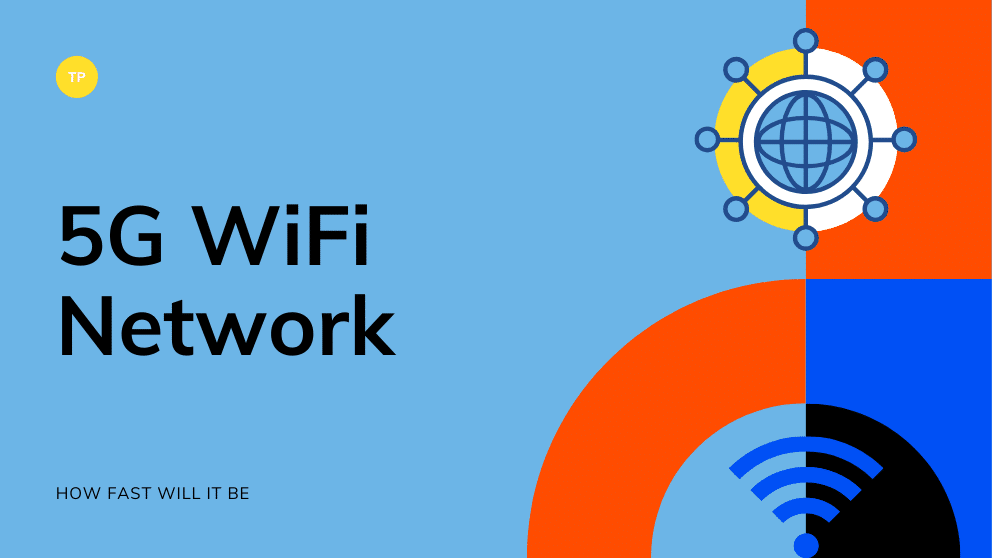Contents
More or less, 5G WiFi is quicker yet 2.4Ghz WiFi has a more drawn out range.
5Ghz and 2.4Ghz are the two frequencies whereupon WiFi can be communicated all through your home.
The 5Ghz recurrence can bolster up to 1Gbps of throughput though 2.4Ghz backings up to 600Mbps.
You could not avoid the 5G hype at CES 2018 and the likewise is continuing true for 2019. Everyone from Samsung and Intel to cellular carriers and smartphone companies all around the world that desires you to know how unusual 5G will be.
The Samsung pronounced it “wireless fiber” that most famous nowadays, assuring super quick low latency internet universally. 5G is assumed to be quicker than a standard home cable internet connection and it is wireless, too so please can access easily.
What Is 5G Network?
5G Network is the enterprise standard that will replace the current popular 4G LTE model.
Just as 4G displaced 3G. 5G just stands for the fifth generation. it’s the fifth generation of this model.
This type of network is designed to be super faster than popular 4G LTE technology.
It’s not just regarding increase speeding of the smartphone internet connections, though. It is regarding allowing high-speed wireless internet from everywhere and everything associated with cars to smart home and Internet of Things (IoT) devices.
In near days your mobile phone and all the other devices you have with cellular connectivity will use the 5G network connection instead of the 4G LTE technology they mostly use today.
How Fast Will 5G Be?
Technology companies are encouraging a lot from 5G. While 4G tops out at a hypothetical 100 Mbps (megabits per second), 5G roofs out at 10 gigabits per second (Gbps). That intends 5G is a hundred times quicker than the current 4G technology. at its ideal maximum speed that we get today, anyway.
It is not just about speed, either. 5G assures to significantly decrease latency, which suggests quicker load times than 4G and improved responsiveness when preparing just concerning anything on the internet.
Definitely, the blueprint assures a maximum latency of 4ms on 5G versus 20ms on 4G LTE today.
How Does 5G Work?
The 5G network gets an advantage of a lot of technology in a trial to deliver these fast speeds. There is not just one invention at play. The IEEE Spectrum publication does a great work of teaching a lot of the scientific features in more depth, but here is a quick report.
The new model of 5G will utilize a full new band of radio spectrum of the 4G network. 5G will get the benefit of millimeter waves, broadcast at wavelengths within 30 and 300 GHz versus the bands under 6 GHz that were used in the past.
These were beforehand only used for conversation among satellites and radar systems. But millimeter waves can’t quickly travel within homes or other hard objects, so 5G will also take benefit of small cells, tinier miniature based callings that can be located about every 250 meters throughout dense urban regions. These would give much immeasurable coverage in such areas.
5G base services will also move at full-duplex, which means they can broadcast and receive at the same time, on the equal frequency. Today, they have to rearrange between communicating and receiving methods, reducing things down. That’s just a picture of some of the technology being combined to make 5G so fast.
When Will It Be Available?
In the USA, Verizon will start working out a non-standard version of 5G in the next half of 2018, utilizing it for home internet access within five centers (cities if possible). Mobile phones that support 5G will not be able to connect, but it will not be for phones, anyway. simply as a way to offer fast home internet service, wirelessly.
AT&T assures to start rolling out 5G for phones in late 2018, but real, unlimited 5G deployment expected will not start until 2019. T-Mobile has agreed to start the rollout in 2019, with “nationwide coverage” in 2021. Sprint declared it will start expanding 5G in late 2019. With plans like these, 5G technology likely will not be published until 2021, at the pure earliest.
When should I use 5g WiFi?
On the off chance that you need a superior range, utilize 2.4 GHz.
In the event that you need better or speed, the 5GHz band ought to be utilized.
The 5GHz band, which is the more up to date of the two, can possibly slice through system mess and impedance to amplify arrange execution.
Is 5g faster than WiFi?
More or less, 5Ghz WiFi is quicker yet 2.4Ghz WiFi has a more extended territory.
OK, it’s somewhat more confused than that. 5Ghz and 2.4Ghz are the two frequencies whereupon WiFi can be communicated all through your home.
The 5Ghz recurrence is additionally less inclined to obstruction than 2.4Ghz.
Will 5g replace WiFi?
While 5G is still some time away for buyers, one of the most evident uses of this innovation will be to supplant your home broadband assistance.
Mika Skarp, CEO at Cloud Street.
Says: Yes, unquestionably 5G will supplant Ethernet, yet it will do a whole lot more, and it needs to.

Blogger, WordPress, JavaScript, software leadership, software development, and related technologies. Love to write blogs and Articles and Passionate About sharing Knowledge.

